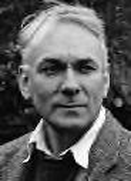
Alan Stott
Alan Stott was born in 1949. He began piano lessons at 13 years old, achieved Grade 8 with merit in three years, and studied in London with Dr Ferdinand Rauter (who founded the Anglo-Austrian Music Society). After studies at Dartington College of Arts, and a teacher training in Bristol, he helped found and taught in the Bristol Waldorf School.
Alan spent 7 years in Germany playing for eurythmy for students and children in Stuttgart, Munich and Nuremberg and leading an active musical life. Returning in 1982 to the UK he played for eurythmy in all the anthroposophical institutions in Forest Row, Sussex (Emerson College, Michael Hall School, The Christian Community, etc.) and founded the Anderida Ensemble that devised programmes of chamber music and eurythmy. He worked with Julian Pook, collecting manuscripts of specially composed service music for The Christian Community (ongoing), and contributing numerous songs and instrumental works.
In 1991 he moved to Stourbridge with his wife Maren (eurythmy and flute) to help the Eurythmy School and Stage Group, both re-founded in the new century, while moving to studios on the campus of Glasshouse College. With his oratorio ‘A Wedding’ he got everyone singing for the 70-years celebration of The Christian Community (Forest Row 1999).
Alan has toured from the Far East and the antipodes to Canada and the USA, and regularly at the Goetheanum, Switzerland.
Alan has also worked considerably in the literary field, as an editor and translator for a number of publications. He is the author of a number of articles on music and eurythmy, published in the Anthroposophical Society’s Newsletter for the Performing Arts Section, Dornach (which he and Maren translated for over 20 years).
With three colleagues he helped produce the Collected Works of Rev. Prof. Hermann Beckh, General Editor Neil Franklin (Temple Lodge). He was drawn all his working life towards Beckh’s researches as a universal scholar into the creative origins of speech and music.
Alan considers that a couple of discoveries that he has discussed in his writings could be important: Chopin’s research of the archetypes in his Preludes, op. 28 (in Festschrift: Essays in Honour of Hermann Beckh, 2016); Steiner’s in-depth indication of who wrote Shakespeare (Shakespeare Matters, Summer 2007, Fall 2011, available online) and Steiner’s clues to his musical manner of writing all his prose in musical sentence-rhythms (Farther In, Nos. 2, 3, and 6, a journal he co-edits with Neil Franklin).
Alan Stott was born in 1949. He began piano lessons at 13 years old, achieved Grade 8 with merit in three years, and studied in London with Dr Ferdinand Rauter (who founded the Anglo-Austrian Music Society). After studies at Dartington College of Arts, and a teacher training in Bristol, he helped found and taught in the Bristol Waldorf School.
Alan spent 7 years in Germany playing for eurythmy for students and children in Stuttgart, Munich and Nuremberg and leading an active musical life. Returning in 1982 to the UK he played for eurythmy in all the anthroposophical institutions in Forest Row, Sussex (Emerson College, Michael Hall School, The Christian Community, etc.) and founded the Anderida Ensemble that devised programmes of chamber music and eurythmy. He worked with Julian Pook, collecting manuscripts of specially composed service music for The Christian Community (ongoing), and contributing numerous songs and instrumental works.
In 1991 he moved to Stourbridge with his wife Maren (eurythmy and flute) to help the Eurythmy School and Stage Group, both re-founded in the new century, while moving to studios on the campus of Glasshouse College. With his oratorio ‘A Wedding’ he got everyone singing for the 70-years celebration of The Christian Community (Forest Row 1999).
Alan has toured from the Far East and the antipodes to Canada and the USA, and regularly at the Goetheanum, Switzerland.
Alan has also worked considerably in the literary field, as an editor and translator for a number of publications. He is the author of a number of articles on music and eurythmy, published in the Anthroposophical Society’s Newsletter for the Performing Arts Section, Dornach (which he and Maren translated for over 20 years).
With three colleagues he helped produce the Collected Works of Rev. Prof. Hermann Beckh, General Editor Neil Franklin (Temple Lodge). He was drawn all his working life towards Beckh’s researches as a universal scholar into the creative origins of speech and music.
Alan considers that a couple of discoveries that he has discussed in his writings could be important: Chopin’s research of the archetypes in his Preludes, op. 28 (in Festschrift: Essays in Honour of Hermann Beckh, 2016); Steiner’s in-depth indication of who wrote Shakespeare (Shakespeare Matters, Summer 2007, Fall 2011, available online) and Steiner’s clues to his musical manner of writing all his prose in musical sentence-rhythms (Farther In, Nos. 2, 3, and 6, a journal he co-edits with Neil Franklin).